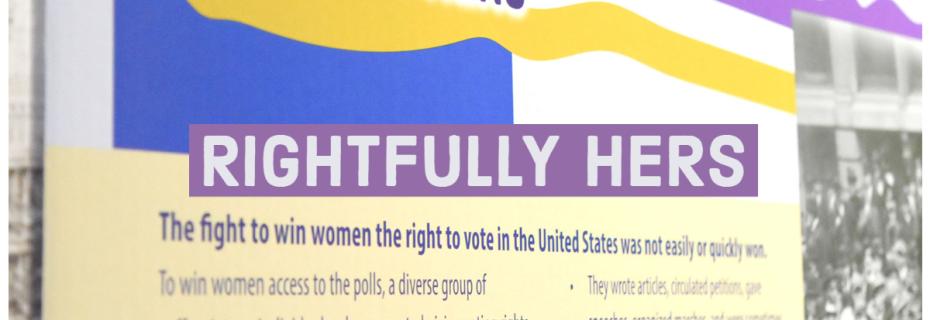Visit
 The Official Web Site of the State of South Carolina
The Official Web Site of the State of South Carolina

The National Archives commemorates the 100th anniversary of the ratification of the 19th Amendment with Rightfully Hers. Before the 19th Amendment When the nation’s founders drafted the Constitution in 1787, they made no mention of women in the document.
Before the 19th Amendment
When the nation’s founders drafted the Constitution in 1787, they made no mention of women in the document that outlined how our Government was to operate. At the time, women were generally excluded from political and, in many ways, public life. Enslaved women were excluded entirely. White women were considered under the protection and authority of their husbands or fathers. In most cases, they could not vote, own property, make contracts, go to court, or control any money they earned.
How Did Women Win the Vote?
To win access to the polls, a diverse group of suffragists-individuals who supported giving voting rights to women-fought for more than 70 years using many different strategies. Over time, these tactics won the political support necessary for ratification of the 19th Amendment to the U.S. Constitution in 1920.
A Constitutional Victory
The right of citizens of the United States to vote shall not be denied or abridged by the United States or by any State on account of sex: 19th Amendment, August 18, 1920
The ratification of the 19th Amendment was a landmark moment in American history that dramatically changed the electorate. It enshrined in the United States Constitution fuller citizenship for women and a more expansive democracy for the nation.
What voting rights struggles persist?
Even after the 19th Amendment was ratified, millions of women remained unable to vote. The 100 years since the ratification of the 19th amendment has seen voting rights expanded to millions more women after struggles against voter discrimination succeeded. Even today, people continue to fight to expand and protect voting rights.
The Rightfully Hers Popup Display was created by the National Archives and is presented in part by the National Archives Foundation through the generous support of Unilever, Pivotal Ventures, Carl M. Freeman Foundation in honor of Virginia Allen Freeman, AARP, and Denise Gwyn Ferguson.
For more information, visit https://museum.archives.gov/rightfully-hers